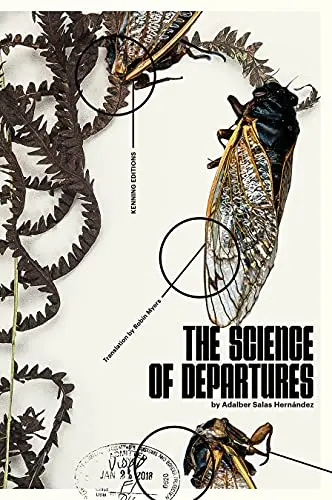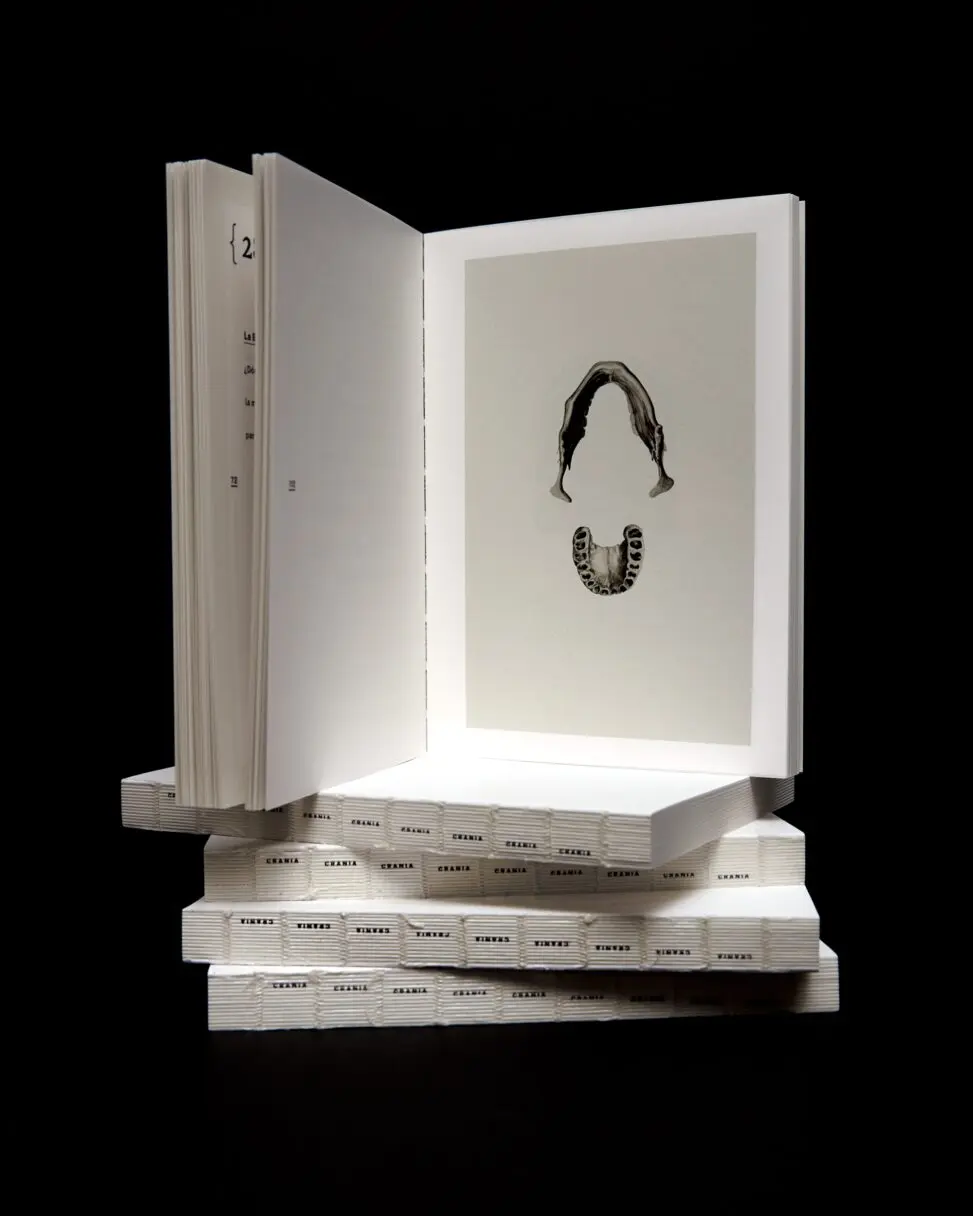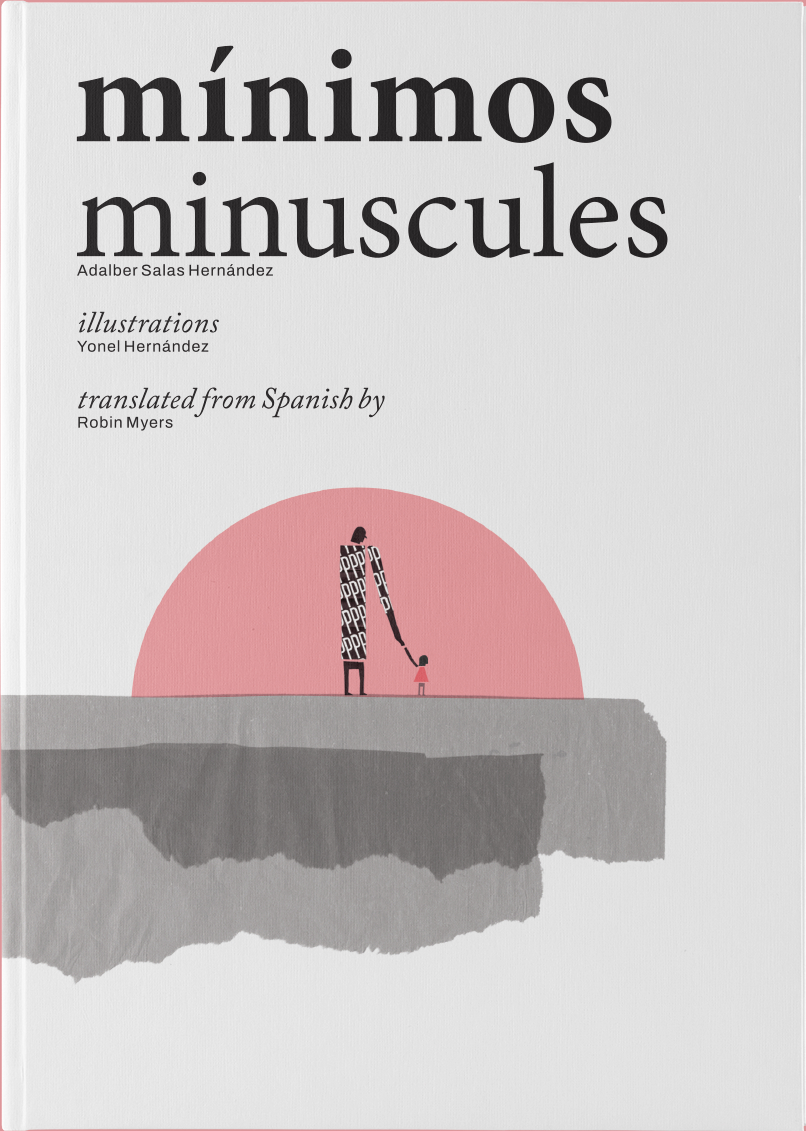I shall begin with a confession and an anecdote. For starters, I do not recall the first time I saw Robin. I couldn’t say when or how I met her. I’ve been thinking about it for hours. I am not exactly sure in which city or country it took place. Which, by the way, is curious: like everybody else, I tend to have a good memory for such initial encounters, all the more so when they are with people of whom I’m especially fond. I remember how I met my wife, the births of my children, the friends I made at first sight. With those stories, I put together the scaffolding of my private mythology. But that’s not the case here. I might say that, when I met Robin, I already knew her. Others may have spent more time in her life, but I had known her forever.
That was what allowed me—in the now unfathomably distant, almost prehistoric year 2019—to get together with her for coffee. Every morning for a few days, we met in Guadalajara, near the feverish hustle of the International Book Fair, to have a chat while we sipped burnt coffee. By then, we were already friends—but since which remote age?—and I clearly recall what we talked about. Our successive conversations allowed me to examine from up close something that had impressed me since the unknown origin of our friendship: her voice. More specifically, the clarity with which she pronounced each word in Spanish, her second language. This was not an entomologist’s clarity: the words were not specimens beneath the glass of her voice. They were worldly words, entirely her own. They were saturated with experience.
There are many ways to approach a second language. For many of us, perhaps most, it is a practical need: the second language is imposed upon us in the midst of pressing, perhaps overwhelming circumstances. For others, it is a matter of receiving an inheritance, of contact with a past that identifies and protects you, with a land that covers you like a blanket. And, for yet others, the second language comes along under the guise of romantic passion. These latter two cases, in their way, coexist in Robin. As she says herself in her essay “Sharing Speech: On Translation as Conversation,” published in the Los Angeles Review of Books, her paternal grandmother, Estela, was born and spent her early childhood in Mexico. Robin never knew Estela, but she received her language obliquely, through family anecdotes and the diction—unexpected, transfigured—of her father and uncles when they spoke Spanish. A language like an unknown planet, like a cluster of possible experiences, right there, so close and so far, just across the street from her voice.
That would be enough to get anyone hooked. As Robin says herself in an interview for The Massachusetts Review, answering a question from Abby MacGregor: “I’m interested in what we don’t know about where we came from”. A feeling many of us share, it’s true, but in Robin’s case it becomes something more. A poetics.
The other reason to learn a language to which I alluded—the romantic one—also shows through in Sharing Speech. It is moving to read of Robin’s dedication, at a very early age, to learning Spanish, and, above all, to learning poems originally written in said language. In “Roads Run Forever,” the thirteenth entry in her blog The Guest, published by Palette Poetry from 2020 to 2022, she tells how, in high school, her Spanish teacher had the class memorize those famous lines from Machado’s Proverbios y cantares that begin, “Caminante, son tus huellas / el camino y nada más.” In “Roads Run Forever,” Robin remembers reading and rereading them aloud, little by little allowing the rhythm and rhyme to be imprinted on the malleable matter of memory. First music, then meaning. First sound, then sense.
Through this background, she received something else, another sort of intangible treasure, which would only grow over the years: an accent. An extremely particular accent, evidently Mexican—what’s more, evidently from Mexico City—but one that belongs only to her. That could be found nowhere else. An accent of one, the watchword of a singular voice. In it, as in fresh water, swim those words that impressed me in their clarity: lively fish. I started, then, to understand their smoothness was owed to the care Robin put into pronouncing them: the conscious, loving care of someone who has received a miracle in the form of sound.
Here, I believe, we might find the double root of her work as a poet and as a translator. The cultivation of the voice as a space of encounter, as fertile ground for shared intimacy. “Translating a poem is a means of inhabiting it, pulling it over yourself like a shirt, trying to make it fit like a skin. It’s yours and it’s not yours. You see it from the inside first. When I write, now, I feel more conscious both of that artifice and that intimacy,” she says in a conversation with Daniel Saldaña París published in the Los Angeles Review of Books in June 2017. Translating a poem as a way of dwelling within it: of getting to know its interior, the ins and outs of this animal made of sounds that is the poetic text. Discovering a new room in the house that is the text’s original language. And, immediately afterwards, building an equivalent room in the house next door, in the target language.
When we translate, both languages belong to us, and, at the same time, they don’t. Both are our home, but this home is a space we share with thousands or millions of speakers. Robin is conscious of the intimacy this practice implies. Reading her answer, I think: to translate is to build intimacies. And that’s how it should be. The world needs these sites of encounter, of fragility and care.
The subject of intimacy returns in another interview, this time for Sonora Review. Asked about her own writing, Robin says, “I think a lot about intimacy amid multiplicity and chaos; about how to stop and make contact (with a person, a place, an idea) amid the overwhelming muchness of the world; about the way we are interpolated by what we observe; and about how transparently we need our memories, our memory, the fact of remembering, to reassure us.” Contact is a pause, a moment that threads together two subjects or a subject with a place or an idea: a moment to stay still and allow the occurrence of this bond—abrupt, delicate—to speak, such that its resounding burble might teach us something about ourselves. Like when, all of a sudden, we hear a song on the street, and just a few notes are enough to open the doors of our memory.
When I read these words, what comes to mind is one of the best-loved poems from Amalgama / Conflations, Robin’s first book, titled “Union Square Station”:
After all the fervor—all the search
for words, the reach for flesh,
the warmth of both, or just
a way to cope with what they do—
and after all the space that’s left
when sought, whether found
or not, I think, standing in the empty
subway stop, while a lone cellist bows
his low harmonics into the cave,
that this, too, must be desire:
reaching out not to the player,
nor with any fire, but to the train: Be slow
and far away. Let me stay
with this raw sound humming
in my lungs. Make me wait.
Never come.
Brilliantly translated, in turn, by Ezequiel Zaidenwerg-Dib:
Después de tanto ardor —tanto tratar
de encontrar las palabras y de tocar la carne,
la tibieza de ambas, o tan solo
una manera de lidiar con sus efectos—,
después de tanto espacio que nos queda
cuando lo buscamos, sin importar si lo encontramos
o no, pienso, parada en la estación desierta
de metro, mientras un cellista solitario
munido de su arco hace que los armónicos
graves retumben por la cueva,
que debe ser deseo esto también:
dirigirse no al músico
(y sin nada de fuego), sino al tren: sé lento,
sé lejano. Déjame que me quede
este zumbido visceral
en los pulmones. Oblígame a esperar.
No vengas nunca.
I have been in that station countless times. I have heard cellists there, but also marimbas and violins and bongos and saxophones and even a drum kit. The power of sound is in full force here: I read the poem—I read it aloud, in the double voice of English and Spanish—and I am standing on the subway platform. Neither Robin nor my memory of her nor her “poetic speaker” nor Ezequiel, but me, with my lungs buzzing like a sounding board, with music bouncing off the hot underground air.
With this poem, Robin has built a space of encounter. For me, it evokes a specific subway station—Union Square in Manhattan—but, for others, it will evoke the memory of other stations, or even images of the subway from film or television. And, in this evocation, this multitude of resonant images, what she calls contact will occur.
For a writer or translator, this contact also takes place in other senses. There is, on the one hand, the permanent dialogue with what one has read before, with that galaxy we call “tradition” and with those arbitrary constellations that we, as readers, draw within it. Robin does not shy away from this encounter, nor does she suffer the much-vaunted “anxiety of influence.” In conversation with Arthur Malcolm Dixon for Latin American Literature Today in June 2022, she endorses “the idea of tradition as something to be engaged with, reappropriated, reinvented, teased.” The notion of contact that is central to Robin’s poetics—that nourishes it, we might say—is radically antihierarchical and horizontal. It is conceived of in the second person: from you to you. Tradition is only fruitful if we appropriate it, if we reinvent it. Any other way, there is no dialogue to be had. And tradition becomes a museum piece.
On the other hand, there is contact with the translated text, another form of intimacy. In the first entry of The Guest, Robin returns to the metaphor of the house to illustrate the closeness this practice brings about: “If you’re staying in someone else’s house, it’s reasonable to assume that they’ve invited you to be there. When I translate a text I really love, I feel nourished by this sense of invitation. Something engages, fastens. Something opens up and stays open”. An opening that not only calls to us, but also instills within us a new sense of responsibility, a sense that is as ethical as it is sonic. We are responsible for the other’s text; we are responsible for the new words in which we (re)embody it; we are responsible for the reverberations we cause in two languages at the same time; we are responsible for what we give the reader. Having a voice is one of the highest forms of responsibility.
Robin is well aware of this difficult privilege. In fact, she cherishes it. In it, she finds the possibility of a conversation whose closeness is fertile and feral at once. She does not sidestep the consequences of sound.
In a conversation with Alan Mendoza Sosa, published in Asymptote, Robin says, “I think a multiplicity of sounds makes for a multiplicity of languages as well, which means I’m always trying to think about what sounds harsh, or sweet, or fluid, or abrupt—about the consequences of sound.” For Robin, to translate, to write, to speak is to exercise this multiplicity; an exercise acutely conscious of the many impacts and unforeseeable consequences it may cause in those who read and listen. In those who share the plural home of language with us. Those who share the same air. With them, she seeks the difficult contact that comes from wonder, from the world that literary language widens and reveals.
As she puts it in one line from You Little Faith / Poquita fe, belonging to the poem “Housekeeping / Limpieza”:
Where air is shared, a reckoning.
Or, in Ezequiel Zaidenwerg-Dib’s translation:
Donde se comparte el aire, se comparte un destino.
Translated by Arthur Malcolm Dixon







